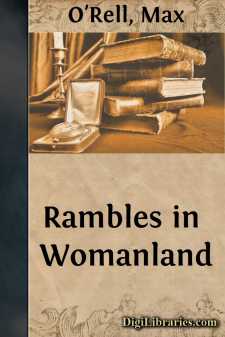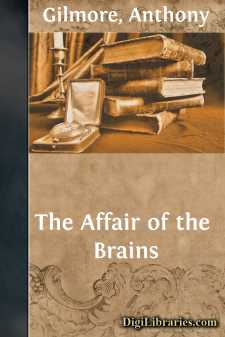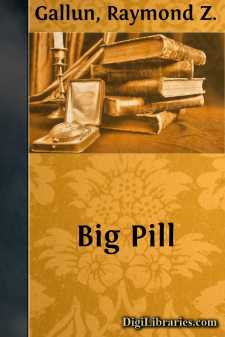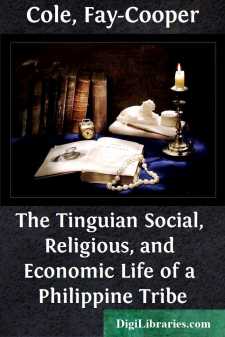Categories
- Antiques & Collectibles 13
- Architecture 36
- Art 48
- Bibles 22
- Biography & Autobiography 813
- Body, Mind & Spirit 142
- Business & Economics 28
- Children's Books 17
- Children's Fiction 14
- Computers 4
- Cooking 94
- Crafts & Hobbies 4
- Drama 346
- Education 46
- Family & Relationships 57
- Fiction 11829
- Games 19
- Gardening 17
- Health & Fitness 34
- History 1377
- House & Home 1
- Humor 147
- Juvenile Fiction 1873
- Juvenile Nonfiction 202
- Language Arts & Disciplines 88
- Law 16
- Literary Collections 686
- Literary Criticism 179
- Mathematics 13
- Medical 41
- Music 40
- Nature 179
- Non-Classifiable 1768
- Performing Arts 7
- Periodicals 1453
- Philosophy 64
- Photography 2
- Poetry 896
- Political Science 203
- Psychology 42
- Reference 154
- Religion 513
- Science 126
- Self-Help 84
- Social Science 81
- Sports & Recreation 34
- Study Aids 3
- Technology & Engineering 59
- Transportation 23
- Travel 463
- True Crime 29
Sort by:
by:
Various
GENIUS. When Paul Morphy plays seven games of chess at once and blindfold, when young Colburn gives impromptu solution to a mathematical problem involving fifty-six figures, we are struck with hopeless wonder: such power is separated by the very extent of it from our mental operations. But when we further observe that these feats are attended by little or no fatigue,—that this is the play, not the...
more...
by:
Max O'Rell
CHAPTER I THOUGHTS ON LIFE IN GENERAL Cupid will cause men to do many things; so will cupidity. I like economy too much as a virtue not to loathe it when it becomes a vice. Many virtues, when carried too far, become vices. Envy is a vice which does not pay. If you let your envy be apparent, you advertise your failure. Nothing is less common than common-sense. Whenever you can, pay cash for what you...
more...
‘We cordially recommend Mr. Ritchie’s book to all who wish to pass an agreeable hour and to learn something of the outward actions and inner life of their predecessors. It is full of sketches of East Anglian celebrities, happily touched if lightly limned.’—East Anglian Daily Times. ‘A very entertaining and enjoyable book. Local gossip, a wide range of reading and industrious research,...
more...
I. THE TALE OF THE PEACOCK TREES Squire Vane was an elderly schoolboy of English education and Irish extraction. His English education, at one of the great public schools, had preserved his intellect perfectly and permanently at the stage of boyhood. But his Irish extraction subconsciously upset in him the proper solemnity of an old boy, and sometimes gave him back the brighter outlook of a naughty...
more...
by:
Anthony Gilmore
CHAPTER I Off to the Rendezvous Hawk Carse himself goes to keep Judd the Kite's rendezvous with the sinister genius Ku Sui. Though it is seldom nowadays that Earthmen hear mention of Hawk Carse, there are still places in the universe where his name retains all its old magic. These are the lonely outposts of the farthest planets, and here when the outlanders gather to yarn the idle hours away their...
more...
by:
Everett B. Cole
District Leader Howard Morely leaned back in his seat, to glance down at the bay. Idly, he allowed his gaze to wander over the expanse of water between the two blunt points of land, then he looked back at the skeletonlike spire which jutted upward from the green hills he had just passed over. He could remember when that ruin had been a support for one of the world's great bridges. Now, a crumbling...
more...
by:
Jennie Hall
THE GREEK SLAVE AND THE LITTLE ROMAN BOY Ariston, the Greek slave, was busily painting. He stood in a little room with three smooth walls. The fourth side was open upon a court. A little fountain splashed there. Above stretched the brilliant sky of Italy. The August sun shone hotly down. It cut sharp shadows of the columns on the cement floor. This was the master's room. The artist was painting...
more...
by:
Louis Tracy
Chapter I “The Stowmarket Mystery” “Mr. David Hume.” Reginald Brett, barrister-detective, twisted round in his easy-chair to permit the light to fall clearly on the card handed to him by his man-servant. “What does Mr. David Hume look like, Smith?” he asked. “A gentleman, sir.” Well-trained servants never make a mistake when they give such a description of a visitor. Brett was...
more...
nder the glow of Saturn and his Rings, five of the airdomes of the new colony on Titan were still inflated. They were enormous bubbles of clear, flexible plastic. But the sixth airdome had flattened. And beneath its collapsed roof, propped now by metal rods, a dozen men in spacesuits had just lost all hope of rescuing the victims of the accident. Bert Kraskow, once of Oklahoma City, more recently a...
more...
by:
Fay-Cooper Cole
Introduction It seems desirable, at the outset, to set forth certain general conclusions regarding the Tinguian and their neighbors. Probably no pagan tribe of the Philippines has received more frequent notice in literature, or has been the subject of more theories regarding its origin, despite the fact that information concerning it has been exceedingly scanty, and careful observations on the language...
more...











